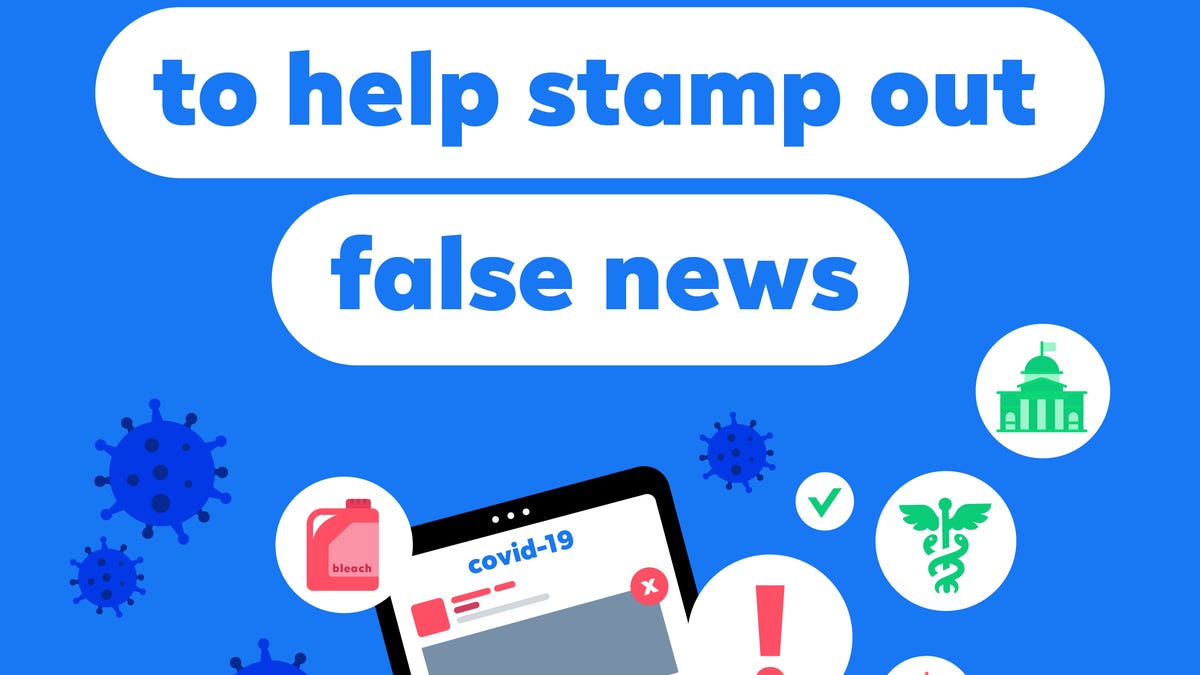Facebook partners with Full Fact to help people spot fake news
It's turning to an ad campaign that will run across Europe, Africa and the Middle East.

Facebook's ads will encourage people to question what they see.
As part of its efforts to help people identify fake news, Facebook will be running an ad campaign with independent fact-checking charity Full Fact.
Starting next month, Facebook users in the UK, Europe, Turkey, Africa and the Middle East will see ads in their feeds encouraging them to think critically about information they see. They will ask people to consider where a piece of information is from, what's missing from it and how it makes them feel.
"Emotive content can be more likely to persuade you into believing false news," said Full Fact Chief Executive Will Moy in a statement Tuesday. "During this health crisis lives are at stake. By taking a moment before sharing something online, people can stop the spread of harmful and misleading information and protect their friends and families."
Preventing spread of misinformation has long been a challenge for social networks, but the outbreak of coronavirus has brought new urgency to the challenge. For Facebook, the fight against fake news has extended beyond the cycle of home feed sharing into private groups dedicated to spreading conspiracy theories and to WhatsApp with its end-to-end encryption, meaning it's hard to keep track of what people are sharing.
Like Twitter and YouTube, the company has been removing swaths of content that violate its policies, while attaching warning labels to discourage people who may promote false information. Boosting users' media literacy -- using the ads to encourage them to question what they're reading -- is the latest tool in its workshop.
"With so many ways to consume the news, it can be difficult to make informed choices about what to read, trust and share," Steve Hatch, Facebook's vice president for Northern Europe, said in a statement. "This campaign is about asking people three simple questions to help them challenge the information they are reading so they can be more informed."
See also: Don't want political ads in your Facebook or Instagram feed? You'll be able to turn that off

